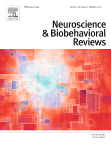 Retraction Watch Rule 5.1, which governs ironic article titles (and does not actually exist), clearly states that researchers who plagiarize should avoid the use of words like “new” or “novel” when describing their research (or lack thereof). Failure to adhere to Rule 5.1 can lead to embarrassment — as in the case below.
Retraction Watch Rule 5.1, which governs ironic article titles (and does not actually exist), clearly states that researchers who plagiarize should avoid the use of words like “new” or “novel” when describing their research (or lack thereof). Failure to adhere to Rule 5.1 can lead to embarrassment — as in the case below.
A pair of electrical engineers from Islamic Azad University, in Isfahan, Iran, has lost their 2012 article in Computers in Biology and Medicine, titled “A novel real-time patient-specific seizure diagnosis algorithm based on analysis of EEG and ECG signals using spectral and spatial features and improved particle swarm optimization classifier,” because, well, it wasn’t. Turns out, the researchers lifted data from an Irish group who, several years earlier, had proposed their own “novel algorithm for neonatal seizure detection.”
As the admirably detailed retraction notice explains: Continue reading Note to authors: Please don’t use the word “novel” when you plagiarize
 A group of neonatologists in Germany has retracted a paper after apparently realizing that their data weren’t what they thought they were.
A group of neonatologists in Germany has retracted a paper after apparently realizing that their data weren’t what they thought they were.







